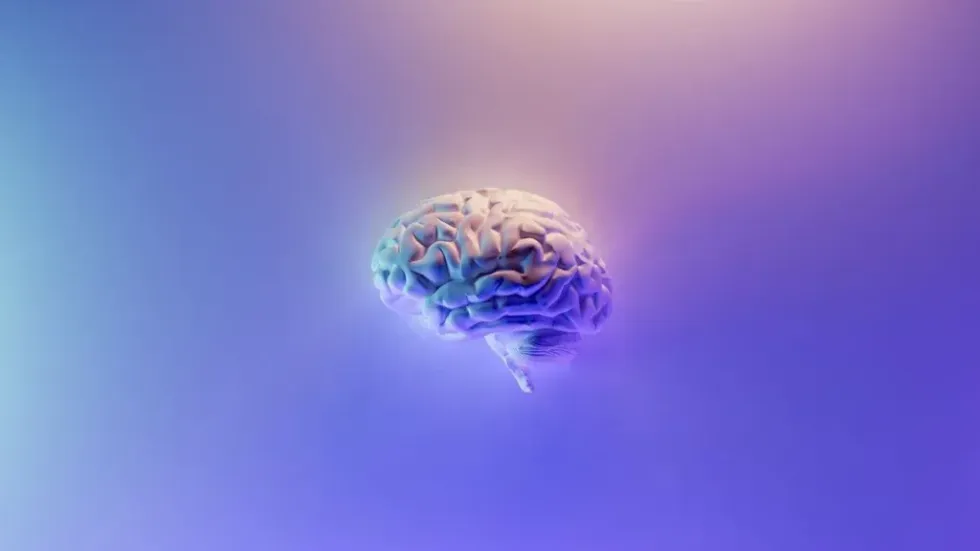Introduction
Meditation isn’t just a relaxation technique – it’s actually a way of working with your brain to improve your mental health and well-being. By training your brain in the art of meditation, you can increase your sense of mindfulness, calmness, and clarity. In this blog, we’ll describe the brain in meditation, what happens to it during practice, and the benefits that you can experience. We’ll also discuss different meditation techniques and the best ways to meditate. So whether you’re interested in improving your mental health or just looking to de-stress periodically, meditation is definitely worth a try!
What is Meditation?

Meditation, originated in India, has been around for centuries. It is simple relaxation that can help you focus and calm your mind. There are several meditation techniques, and all of them have their own benefits. People often think of meditation as sitting still with your eyes closed, but that’s not the only way to do it. In fact, you can meditate in several ways, including by focusing on your breath, by repeating a mantra, or by listening to music. If you’re new to meditation, start by trying out a few types until you find the one that works best for you. You’ll soon find that meditation has a lot of benefits—from reducing stress levels to improving your concentration and even reducing the noise in your mind!
What are the Types of Meditation
There are different meditation techniques, each with its own benefits. Some of the most popular include Vipassana meditation, Zen meditation, and Mantra mediation. Although all of them involve focusing your attention on achieving a state of peace and relaxation, the most popular is mindful meditation. Here’s a detailed guide for you to start.
What Happens to your Brain in Meditation?

Lots of evidence suggests meditation can improve the brain in several ways. Meditation improves focus, concentration, and reduces stress. Also, it helps in improving mental health, increasing gray matter in the brain, and even enhancing compassion and empathy.
The Brain undergoes Physical and Mental Changes
There are several changes that take place in the brain when you meditate. These changes help improve mood and focus as well as reduce stress levels. In addition, meditation leads to changes in the amygdala, hippocampus and prefrontal cortex—the three parts of the brain responsible for regulating emotions, memory formation and cognitive function, respectively.
Also, meditation leads to increased neural activity in the hippocampus and the prefrontal cortex. This increased activity helps improve recall skills and focus on tasks. Further, we will discuss the benefits and effects of meditation on the brain.
Meditation Calms the Mind

Meditation reduces stress levels, anxiety, and depression symptoms. When you’re stressed, your body releases cortisol, which can have negative consequences for your health (like weight gain or an increase in heart disease). Studies have shown that meditation reduces cortisol levels by increasing the production of oxytocin, a hormone associated with happiness and calming sensations. This means that even if you don’t achieve total peace during meditation sessions, you’ll likely feel calmer and less stressed afterwards.
Note: However, keep in mind that not all meditators experience positive result—some people find their mood worsens after beginning meditation practices! It all depends on what works for you and how consistent you are with your practice.
Meditation can Help Improve Sleep Patterns

If you’re looking for a way to improve your sleep patterns, meditation can be the perfect solution. While meditating, the brain goes into alpha and theta states. Alpha state is the state of mind where the person is alert and calm at the same time (without fear, stress, or anxiety), and theta state is the state of mind when the brain undergoes REM cycles—a stage of sleep in which the mind is calm and the muscles relax. In conclusion, meditation helps in keeping the brain and the body relaxed and thus helps in maintaining regular sleep intervals. Not only does it improve your sleep schedule, but it also helps your overall mental health. This “rewiring” of the brain that happens during meditation is why it offers such long-term benefits.
Meditation has Anti-Inflammatory Effects

Meditation also has anti-inflammatory effects on the brain. It reduces stress and increases the neural activity in the brain, helping increase the blood flow to it. This leads to a better recovery from headaches due to stress. Also, while in a meditative state, the muscles relax and thus can recover from physical stress and inflammation. So if you are feeling under the weather or your head is always spinning with problems, trying out meditation might just be the answer you’re looking for!
Cognitive Benefits of Meditation

There are multiple cognitive benefits of meditation, including promoting a sense of well-being, and even increasing your lifespan. While the benefits of meditation can be profound for both individual users and the society, it is especially beneficial for people suffering from mental health issues or stress. Some of the cognitive functions that benefit from meditation are:
- Focus – Meditation increases the ability to focus by training the brain to think and speculate on a subject for longer times. Also, it helps build neuron connections, thus creating new thinking patterns and increasing creativity.
- Memory – It increases the neural activity in the hippocampus, which is an essential part of the brain responsible for memory, thus increasing the memory power.
- Aptitude – It increases the neural activity in the prefrontal cortex—a part of the brain responsible for thinking and planning. By meditating regularly, you can even thicken the gray matter in the prefrontal cortex, and literally be smarter.
- Skill Acquisition – Increased memory, focus, and aptitude help in learning new things easier. Meditation also helps in making new neural connections (during speculation or self-reflection while meditating) and so helps in acquiring new skills, including learning musical instruments, new languages, art, mathematics, and science.
- Decision Making – Studies have shown that prolonged meditation reduces the size of amygdala and thus improves decision making. Amygdala is the part of the brain which handles the fight-or-flight response in beings. It makes you feel fear, anxiety, anger, etc., and is called the lizard brain (responsible for the intuitive actions). Meditation reduces its physical size, thus giving priority to the reasonable part of the brain and enhancing decision making.
Are there any Side Effects of Meditation?

Different cultures have practiced meditation for centuries, and it is now gaining popularity as a solution to improve mental health. There are no known side effects of meditation as long as you are comfortable with the practice. If you’re new to meditation or find it difficult to stick with, start small by practicing only for 10 minutes each day at first! In the end, meditation is an act of focus and relaxation, which has many benefits for your mental health. So try it out and see the benefits for yourself! However, if you experience any negative side effects, such as headaches, it might be best to stop meditation and consult a doctor.
Are there any Risks Associated with Meditation?
There are some risks associated with meditation—you might feel drowsy or stressed after a session. Some people also go into a cycle of negative thoughts while meditating and thus come out of it depressed. Also, an anxious mind or a hyperactive mind might find meditation disturbing at long intervals. Although you should always speak to your doctor before starting a meditation practice to make sure there are no risks involved, you should also remember that meditation has been there for centuries and has many health benefits. If people face problems, it is because they do not follow the right rules or start with rigorous exercises (exerting more than capacity). Otherwise, meditation is the safest practice with innumerable long-term benefits. It is a holistic approach to a healthy lifestyle.
How long does it take for the Benefits to Manifest?
There are many benefits to meditation. However, the process of realization may take some time as the benefits manifest gradually. If you’re new to meditation, start with shorter sessions and increase the duration with your capacity to adapt. You will start feeling some effects in the first week, while some long-term benefits may take years to materialize.
How to Start Meditating?

If you are looking for mental health benefits, start with something like breathing meditation first. It’s low intensity and won’t overwhelm your mind or body. However, if you are just starting out, it’s important to meditate for brief intervals at first and work your way up to the time you want to spend meditating each day. Once you’ve found a method that works for you, be consistent with it. If you find that you’re struggling to stick to a meditation schedule, consult a professional. They can help you find the right type of meditation for you and offer guidance on how to get the most out of it.
Meditation is Not Just for Monks!
Remember, meditation is not just for monks! Doesn’t matter if you follow a particular religion, are spiritual, or do not believe in any higher power, it can be a great way to clear your mind and focus on your thoughts in any setting. You don’t need any special equipment or settings—just be comfortable and silent. The best time to meditate is when you are relaxed and can focus on your thoughts without interruption.
How to Find a Comfortable Place to Meditate?
To meditate, you do not need a special place. If you have focus and dedication, you can meditate while sitting on a bus or even walking. Eventually, it becomes a lifetime habit. However, in the beginning, choose a place that is peaceful so you can fully relax your mind and body. In your space, choose a comfortable position. Sitting on the hard ground or in an elevated place is not advised. You can sit on a soft mat on the ground and if your health doesn’t allow, you can even use a low chair or bed. Take a position, which you do not have to change frequently, and you are ready to meditate.
Tip: Once you’ve found a suitable space and started practicing regularly, don’t forget to journal about your experience!
How to Meditate Correctly?
Meditation is a great way to improve your mind and mood. It can also help you de-stress, focus better, and increase concentration. However, it is important to know how to meditate correctly in order to reap the full benefits of this relaxation technique! To get started with meditation, make sure you find a comfortable place – your bedroom should be perfect for starters!
Once you settle down, start by focusing on your breath. Follow it in and out slowly and evenly while keeping your attention on the sensations it creates in your body. Continue doing this until you reach a state of hypnosis or mastery over yourself. Here are 7 simple breathing exercises for you to master. Remember that meditation takes time and practice to become effective; so don’t be discouraged if at first it doesn’t seem like anything is changing for the better! Just keep practicing regularly until eventually meditation will become second nature for you—just like any other skill!
Tips for Beginners
If you’re new to meditation, here are a few tips that can help make the experience easier and more consistent.
- Start by practicing every day for at least 10 minutes—even if it’s just for five minutes at first, this will give you the habit of meditating.
- There are plenty of simple techniques available that you can use without having to become an expert; find one that works best for you and stick with it.
- The most important thing is not to stress about meditation—allow yourself to drift into your own world!
Conclusion
Meditation is a practice that has been there for centuries to calm the mind and improve concentration. By understanding what happens to the brain in meditation, you can learn how meditation can help you achieve your goals. It has shown to improve focus, concentration, and even reduce stress levels. So, why not try to see for yourself? We hope you’ve enjoyed this blog and that you’ll stick around for more!





















